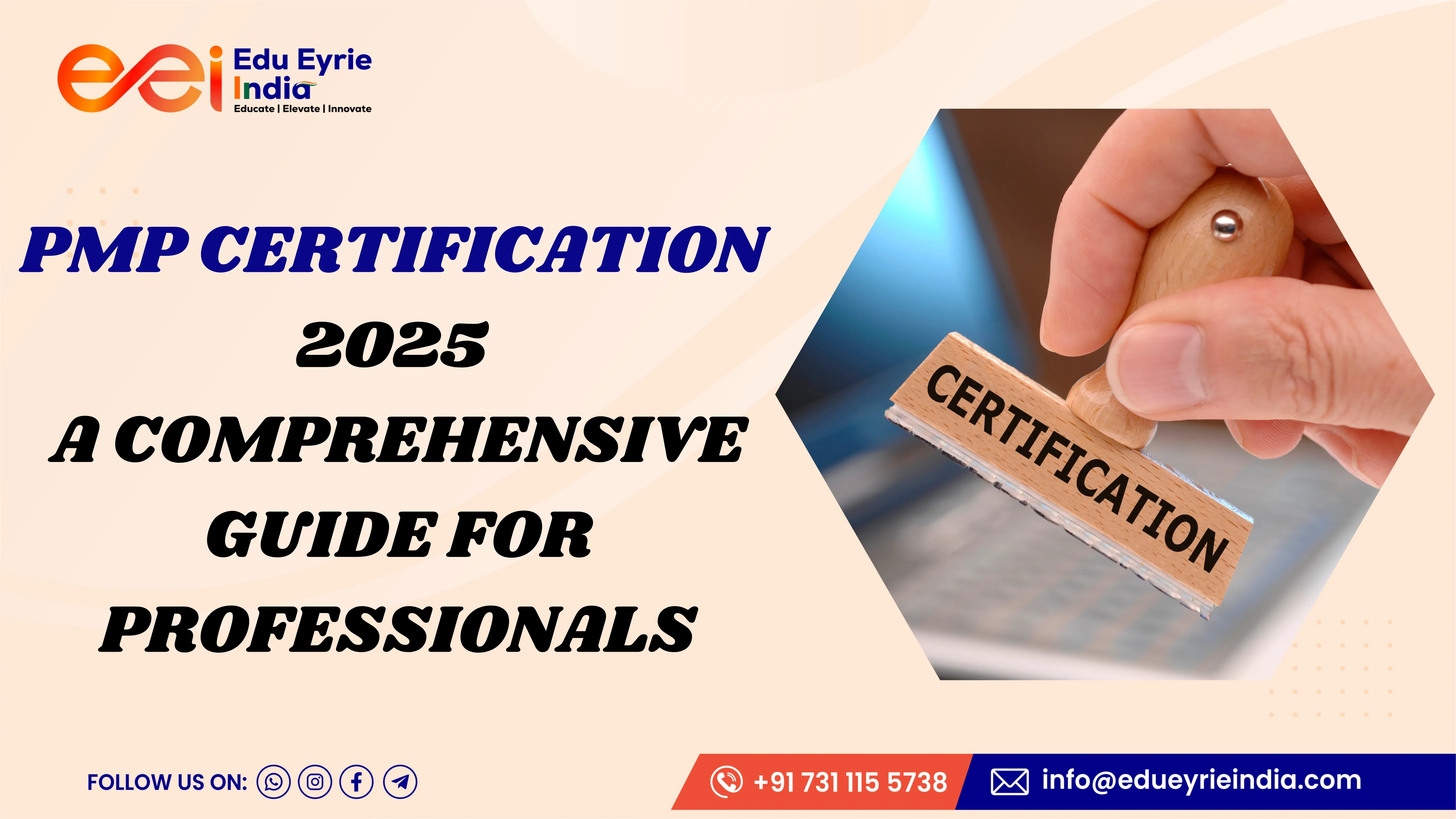The Project Management Professional (PMP) certification, administered by the Project Management Institute (PMI), is one of the most sought-after credentials for project managers worldwide. With a reputation for rigor and relevance, the PMP certification validates expertise in managing projects, leading teams, and delivering outcomes effectively. As we approach 2025, the certification process has evolved to meet the dynamic demands of industries and professionals.
This guide provides an in-depth look at PMP certification in 2025, covering its introduction, eligibility criteria, opportunities, time investment, and more, supported by analysis and data.
Introduction to PMP Certification
What is the PMP Certification?
The PMP certification signifies a globally recognized standard of excellence in project management. It demonstrates an individual’s ability to effectively lead and manage projects across various industries.
- Administering Body: Project Management Institute (PMI)
- Global Reach: Over 1.3 million certified professionals in 200+ countries as of 2023.
- Significance: PMP-certified professionals report higher median salaries (16% higher globally and 32% higher in the U.S., according to PMI's 2023 salary survey).
Why Pursue PMP in 2025?
- Relevance: With the rapid adoption of agile methodologies, digital transformation, and hybrid project environments, the PMP certification now incorporates diverse approaches to project management.
- Career Advancement: Employers increasingly seek PMP-certified professionals for leadership roles.
- Validation of Skills: PMP emphasizes a blend of technical, leadership, and strategic management skills.
Eligibility Criteria for PMP Certification (2025)
To qualify for the PMP exam, candidates must meet specific educational and professional experience requirements.
Prerequisites
Educational Background:
- A secondary degree (high school diploma, associate’s degree, or global equivalent).
- OR a four-year degree (bachelor’s degree or higher).
Project Management Experience:
- With a secondary degree: 60 months of project management experience.
- With a four-year degree: 36 months of project management experience.
Training Requirement:
- 35 hours of formal project management education/training or CAPM certification.
Additional Notes
- PMI recognizes project management experience across industries. For example, professionals in IT, construction, healthcare, and marketing can all qualify with relevant experience.
- The experience need not always be in a "project manager" role but must demonstrate leadership in project delivery.
Exam Structure and Content (2025)
The PMP exam tests candidates across three domains: People, Process, and Business Environment, reflecting the PMI Talent Triangle of leadership, technical skills, and strategic management.
Key Highlights of the Exam:
- Format: Computer-based, 180 multiple-choice, multiple-response, hotspot, and fill-in-the-blank questions.
- Duration: 230 minutes.
- Focus Areas:
- People (42%): Emphasizing team leadership, stakeholder engagement, and communication.
- Process (50%): Project execution, planning, and risk management.
- Business Environment (8%): Strategic alignment, compliance, and impact analysis.
- Languages Available: The exam supports 14 languages, ensuring global accessibility.
Recent Updates:
PMI incorporates Agile, Scrum, and hybrid methodologies to align with modern practices, ensuring the certification remains relevant for contemporary project challenges.
Opportunities for PMP-Certified Professionals
A PMP certification opens doors to numerous career advancements and higher earning potential.
Job Market Demand
The Project Management Institute's Talent Gap Report (2023) projects a need for 25 million new project managers by 2030. The most significant growth is expected in:
- IT and Technology
- Healthcare
- Construction and Infrastructure
- Energy and Sustainability
Salary Benefits
- Global Median Salary: $123,000 for PMP-certified professionals.
- Non-certified project managers earn significantly less, averaging $93,000 globally.
Role Opportunities
Common roles for PMP-certified professionals include:
- Project Manager
- Program Manager
- Portfolio Manager
- Product Owner or Scrum Master (with Agile emphasis)
Time Investment for PMP Certification
Training and Study Requirements
1. Formal Training
- A minimum of 35 hours of project management education is mandatory.
- Training can be completed via PMI-accredited programs, online platforms, or in-person workshops.
2. Study Preparation
- Average Study Time: 3-6 months, depending on prior knowledge and availability.
- Suggested Weekly Study Time: 10-15 hours.
3. Mock Tests and Practice
- Completing at least 5-10 full-length mock exams is crucial for success.
Realistic Timeline
For working professionals, balancing preparation with job responsibilities means allocating at least 12 weeks for focused study, assuming a part-time schedule.
Cost of PMP Certification
Exam Fee
- PMI Members: $405
- Non-members: $555
- PMI Membership Fee: $129 annually (plus a $10 one-time application fee).
Additional Costs
- Training Programs: $500-$2,000 (varies by provider).
- Study Materials: $50-$300 (PMP guides, online resources).
- Re-examination Fee: $275 for members, $375 for non-members.
ROI Analysis
- Initial Investment: $1,000-$2,500 (including training and fees).
- Salary Uplift: Average increase of $20,000 annually post-certification.
Challenges and Solutions for PMP Aspirants
Challenges
- Time Management: Balancing study with professional and personal commitments.
- Content Volume: The PMBOK Guide and Agile Practice Guide are dense and require thorough understanding.
- Exam Rigor: The passing rate is estimated at around 60-70%, emphasizing its difficulty.
Solutions
- Leverage online learning platforms for flexible training.
- Join study groups or local PMI chapters for peer support.
- Use PMP simulators and mock tests to build confidence.
How PMP Aligns with Future Trends
1. Emphasis on Agile and Hybrid Methodologies
The integration of Agile principles in the PMP exam reflects a shift towards iterative and collaborative project management.
2. Focus on Leadership Skills
Leadership skills, such as conflict resolution and stakeholder management, are critical for managing cross-functional teams in diverse environments.
3. Integration with Emerging Technologies
PMP certification aligns with the need for managers to oversee AI-driven tools, data analytics, and automation projects.
Conclusion
The PMP certification in 2025 remains a cornerstone of professional development for project managers. With its focus on evolving methodologies, leadership skills, and strategic alignment, PMP equips professionals to excel in competitive global markets. While obtaining the certification demands significant time and financial investment, the long-term career benefits, including increased earning potential and job opportunities, make it a worthwhile endeavor.
By preparing effectively, leveraging resources like PMI-accredited training, and committing to consistent study, professionals can navigate the challenges of PMP certification and unlock their career potential.

